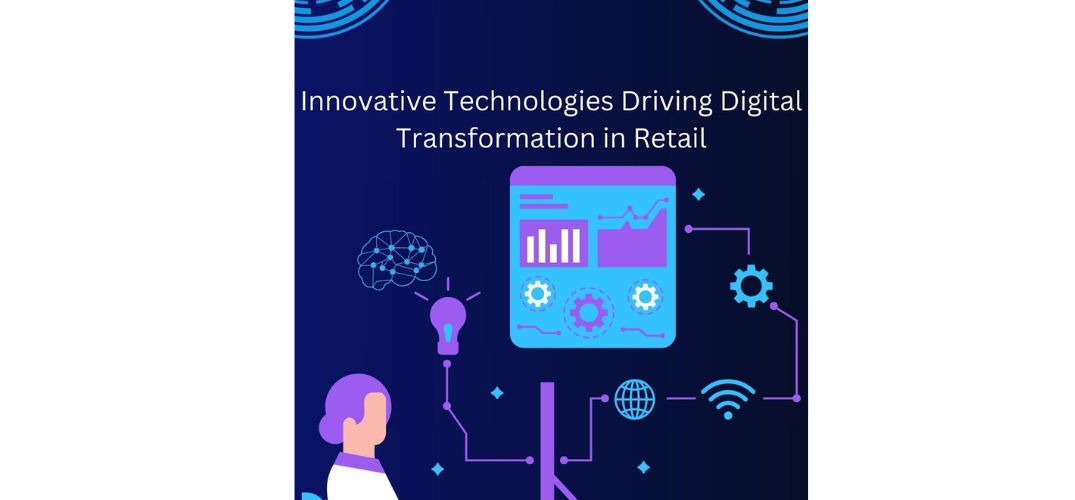The retail industry is undergoing a fundamental digital transformation, driven by next-generation technological innovations that are reconstructing enterprise infrastructures, omnichannel customer engagement, and data-centric intelligence systems. Vaishnav Yerram explores the disruptive integration of Enterprise Resource Planning (ERP) systems, artificial intelligence (AI), and autonomous process automation in revolutionizing retail ecosystems. His analysis provides a deep technical examination of how enterprises can deploy these advanced technologies to enhance operational efficiencies, leverage predictive analytics, and enable real-time, AI-driven strategic decision-making.
The Role of ERP in Modern Retail
ERP systems have evolved from simple data management tools to comprehensive platforms that integrate various business processes. Modern ERP solutions ensure seamless coordination between inventory management, customer relationship management, and supply chain logistics. These systems enable real-time data synchronization, allowing retailers to optimize stock levels, track transactions efficiently, and enhance customer service experiences.
Advanced analytics capabilities within ERP systems now leverage artificial intelligence and machine learning to provide predictive insights, helping businesses anticipate market trends and customer demands. Cloud-based ERP solutions offer enhanced accessibility and scalability, enabling organizations to adapt quickly to changing business needs. Mobile integration has become a standard feature, allowing employees to access critical business data and perform operations from anywhere. Additionally, modern ERP platforms incorporate robust security measures to protect sensitive business data while facilitating collaboration across departments. The integration of IoT devices with ERP systems has further revolutionized operations by providing granular visibility into manufacturing processes, warehouse management, and supply chain movements.
Financial Automation and Intelligence
Retail has witnessed a transformation with the implementation of intelligent automation. Advanced document recognition systems now enable automated processing of invoices, reducing manual errors and expediting financial workflows. Retailers can now capture real-time financial data, track performance metrics, and implement predictive analytics to assess potential risks and opportunities. This level of automation enhances strategic planning and ensures compliance with financial regulations. These technological advancements have revolutionized decision-making processes, enabling retailers to make data-driven financial choices with greater accuracy and confidence.
Smart Inventory and Supply Chain Optimization
The integration of Low-Power Wide-Area Network (LPWAN) technology has revolutionized inventory and supply chain management. By leveraging real-time monitoring, retailers can track stock movements with precision across multiple sales channels. AI-driven forecasting models help in anticipating demand, reducing stockouts, and minimizing overstock situations. Additionally, automated warehouse systems, including robotic picking and smart shelving, are enhancing order fulfillment accuracy and efficiency. These technological advancements have also enabled predictive maintenance of warehouse equipment, reducing downtime and operational costs. The implementation of blockchain technology further enhances supply chain transparency, allowing retailers to verify product authenticity and track goods from source to shelf with unprecedented accuracy and reliability.
Enhancing Customer Experience Through Data Integration
Retailers are increasingly utilizing unified data platforms to provide seamless customer experiences. Advanced behavioral analytics allow businesses to track purchasing patterns, preferences, and engagement across multiple touchpoints. This integration enables highly personalized recommendations, dynamic pricing strategies, and targeted promotional campaigns. AI-powered customer engagement tools further enhance interactions by offering tailored solutions based on real-time data insights.
Strengthening Retail Security and Data Protection
With the rise of digital transformation, data security has become a crucial aspect of retail operations. Modern security infrastructures employ multi-layered encryption protocols, public key infrastructure (PKI) systems, and real-time authorization frameworks. These advancements ensure data integrity, protect against cyber threats, and maintain regulatory compliance. Automated audit trails further enhance security by monitoring system access and identifying potential vulnerabilities.
Future Trends in Retail Technology
The next phase of retail innovation will be driven by cloud-native architectures, edge computing, and advanced analytics. Retailers are exploring modular technology frameworks that allow seamless integration of emerging technologies. The adoption of machine learning models for real-time performance monitoring and predictive analytics will further enhance operational agility. As businesses continue to evolve, embracing these innovations will be key to maintaining a competitive edge in the retail landscape.
In conclusion, Vaishnav Yerram underscores the pivotal role of technology in transforming retail. From ERP advancements to AI-driven automation and security enhancements, modern retail is becoming more data-driven, efficient, and customer-centric. As the industry moves forward, retailers that embrace digital transformation will be best positioned to thrive in an ever-evolving marketplace.



































